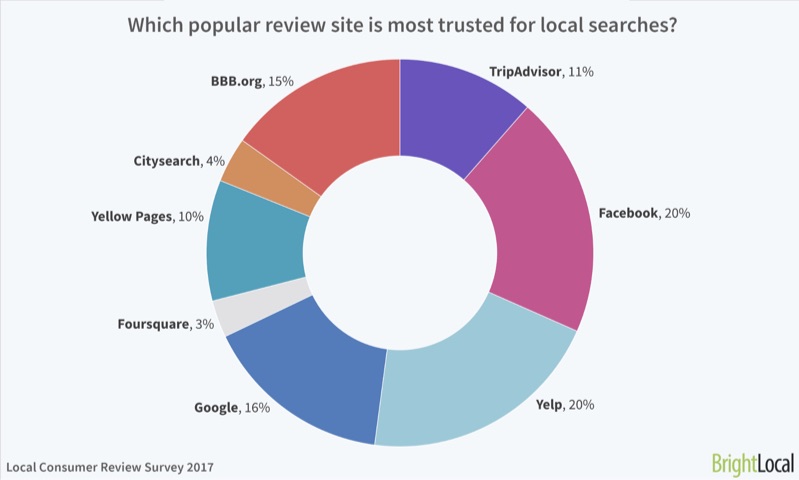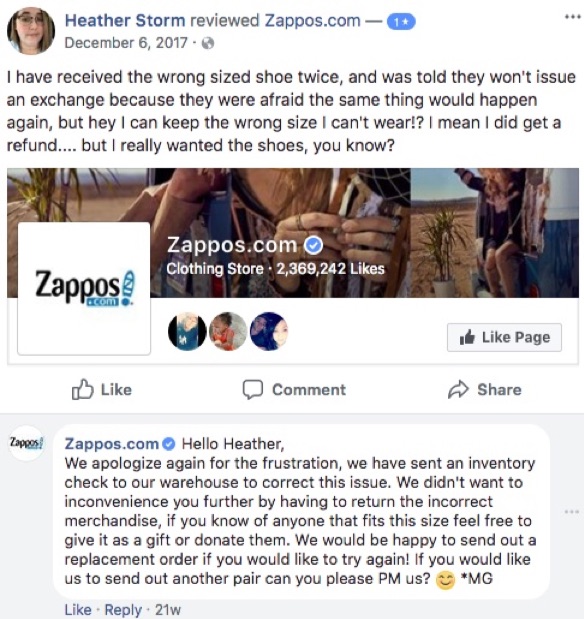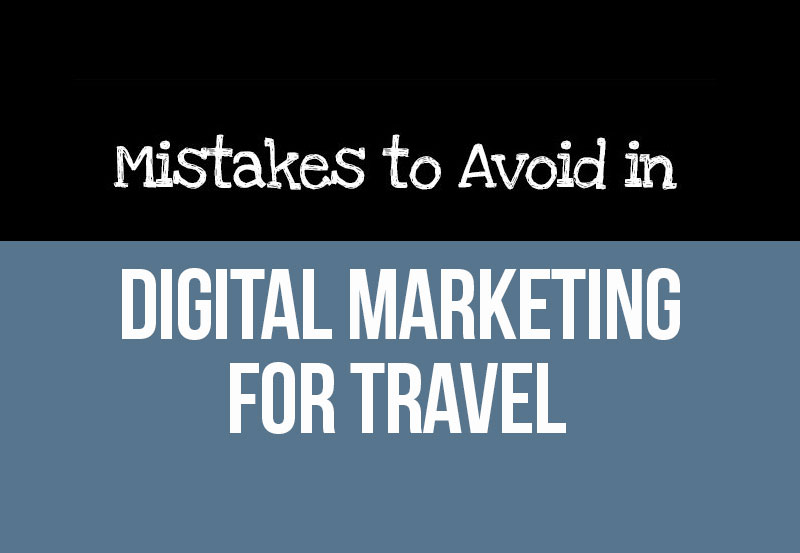Why Travel Businesses Need to Manage Their Online Reputation
Travel businesses are one of the few service-based sectors which have been disrupted by the rise of the internet and new media platforms such as social media.
The process of travel planning and booking a holiday has become primarily internet driven, as more and more customers use the web to research destinations, hotels, resorts, and even book packages.
Customers seek out travel businesses with good reviews over the ones with no reviews at all or with poor customer feedback.
According to several studies, 70% of the customers look at up to 20 reviews in their holiday planning process, while 33% will change their plans or choice based on reviews and almost 53% won’t book a hotel without any reviews.
These stats show us how important online reputation is to a modern-day travel business as the perception of a travel brand directly affects its sales and profits.
Online Reputation management is a learn-able skill and managing your travel businesses’ reputation will help you in a number of ways
Improve Trust and Credibility
Almost 84% of consumers today don’t trust advertising and other forms of paid marketing.
User generated reviews, on the other hand, are considered genuine and trustworthy by consumers.
TripAdvisor has revolutionised the whole process of reviewing a travel-based business, and most people visit this website multiple times during their holiday research process to learn more about hotels, resorts, and other travel businesses.
Your business doesn’t even need to be listed on TripAdvisor by you, as your customers can list it and then post a review.
But it’s not just Trip Advisor. There are range of potential review sites for disgruntled customers to choose from:

A few bad reviews on such platforms which are used by millions of users is enough to damage your reputation and may seriously affect your business.
While excellent and positive reviews will help you gain the trust and credibility of your future customers and will increase your revenue and profit.
Many travel businesses wrongly assume that they don’t have any option if a person has left them a bad review. You must reply to such reviews and address the issues raised by unsatisfied customers.
A positive reply to a negative review can have more impact than a positive review would.
Your reply will have a positive impact and will show to potential customers that you care about your reputation.
It may also change the opinion of the user who has left the bad review as negative reviews are often a result of minor issues which are often blown out of proportion by customers, looking for a platform to air grievances.
Often they just want to be listened to.
Have a read of ‘Your Business Needs More Negative Reviews. Here’s Why‘ by Neil Patel
Attract New Customers
Managing your online reputation will help you in attracting new customers as users are naturally attracted to businesses with a positive image on the internet.
Reputation management entails dealing with bad reviews and focuses on positive information about a business.
Gain valuable insights
Monitoring your brand’s online reputation will lead you to better insights and will give you an idea of how consumers and competitors perceive your brand.
You can use the insights gained to create an effective marketing strategy after considering all the information gained through the process.
Tips for managing your online reputation
Monitoring
Monitoring your online reputation is the first step of any good reputation management strategy as you can’t improve what you can’t measure.
Often businesses will need to do an in-depth audit of all the information online about their businesses and then set up automatic alerts to monitor each time their brand is mentioned on the internet.
You can easily set up Google Alerts for your brand or use automatic monitoring tools such as Mention or Cision to track each time your brand is mentioned over the Internet.
There are also numerous tools available for monitoring mention of your brand on social media sites and some social media tools such as Hootsuite has this feature inbuilt within them.
Claim your listings
As mentioned above, anyone can list your travel business on travel comparison sites, review sites, and social media platforms.
It’s a good idea to claim these listings as your own as it will allow you to control the process and reply to reviews.
Some sites such as Facebook have made the process of claiming a listing easier, but with others, you may have to wait for days or even weeks.
Respond to Reviews
The only thing worse than a bad review is not responding to it.
A lack of response shows to readers that you don’t care about the complaints of your customers.
It also portrays you as insensitive and careless about your online reputation. So, always respond to bad reviews and try to address the issues raised by your customers.
Don’t act defensively
Many travel businesses make the mistake of defending themselves or their employees for unsatisfactory service.
This further harm their image in the eyes of potential customers who often read responses to bad reviews carefully while making a purchase decision.
Defend your actions only if it’s crystal clear that the customer is wrongly accusing you of something which you didn’t do.
Be quick
You need to reply to any bad review promptly as a slow response may further complicate the issue and may lead to bad publicity.
If the review requires a detailed response or some time to sort out the issue, then acknowledge the review and provide a timeframe for the complete answer.
Create Valuable Content
Content has become an integral part of modern online marketing, and most consumers make their purchase decisions based on valuable content created by the seller.
This is especially true for travel-based businesses as travel businesses are primarily selling experiences, and most travel businesses use content to provide a glimpse of these experiences to potential customers.
Rich and valuable content, also called Evergreen Content, can help you stand out from the competition and will also enhance your reputation in the eyes of your customers.
Make sure that you include images and videos in your content marketing strategy as these are the most appealing form of content for potential travellers.
There is no one size fits all approach when it comes to content creation as each business is inherently different and needs a custom content strategy to succeed.
Ideally, you must develop content which entertains and educates the potential customers at the same time and arouses a desire in them for your services.
You can test several content styles, formats, media channels and make a detailed plan to promote your content after studying the data.
With some testing and tweaking, you will be able to find the right combination of elements.
Read more about ‘The True Power of Evergreen Content – A Case Study‘ from Moz
Have a social media strategy in place
Social media is often the first place where customers look for travel inspiration, and several studies suggest that almost 87% of millennials use Facebook for travel inspiration.
The same study suggests that 97% will post on social media while travelling.
These stats show the importance of social media marketing for travel businesses. No travel business can afford not to have a social media presence, and this is also important from the point of reputation management.
It’s a well-known fact that most people post about bad experiences with a travel brand on their social media profiles and often the effect is compounded due to the viral nature of social media.
A single bad review will be instantly seen in the news feeds of all the people who are associated with the unhappy customer.
Tips mentioned above for managing bad reviews on review sites such as TripAdvisor can also be applied on social media. It’s important to promptly address a bad review on social media and thank the customers who’ve left you a positive review.
This will show others that you care about your reputation and are actively monitoring each time someone mentions you on social networking sites.
Social media is also a prime example of word of mouth marketing as people tend to trust recommendations and reviews from their friends and acquaintances.
This fact can be used to your advantage as a single positive review will help you in enhancing your reputation in front of hundreds of potential customers.
Conclusion
We hope that you have now realised the importance of managing your online reputation.
Perhaps we can never overestimate the importance of reputation management in today’s digital world where a single Facebook post or tweet can destroy a brand’s reputation.
By following the tips mentioned above, you can monitor your online reputation and increase your sales.
You may also contact us for help with reputation management, as we have helped hundreds of travel businesses in the past to create a positive digital identity.
By continuing to use the site, you agree to the use of cookies. more information
The cookie settings on this website are set to "allow cookies" to give you the best browsing experience possible. If you continue to use this website without changing your cookie settings or you click "Accept" below then you are consenting to this.















